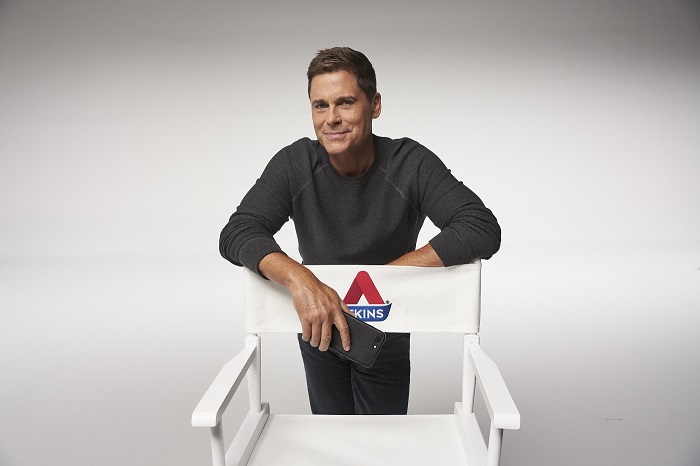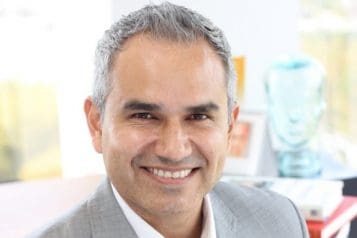One of the best ways to looking good and feeling better comes from within. Just ask Colette Heimowitz, vice president of nutrition, research and education at Atkins. She has been working with Rob Lowe over the past few years to help him live the low carb lifestyle that he often talks about that helps him continue to be active while maintaining high levels of energy. Heimowitz discusses with us her thoughts on cheat days and shares some tips on achieving your own health and fitness goals.
 Photo Credit: Atkins
Photo Credit: Atkins
What is the secret to maintaining a healthy lifestyle?
Following the Atkins low carb lifestyle comprised of a balance of high-fiber carbs, optimal protein and healthy fats is the secret to a healthy lifestyle.
Rob Lowe is 55 years old but looks at least 20 years younger. Can you give us a look inside a typical day featuring his low carb lifestyle?
Rob has been living a low carb lifestyle since he was in his late 30s and focuses on foods that are rich in protein and low in sugar and carbs. Rob has had success with Atkins because he never feels like he’s missing out on his favorite foods, and often talks about how Atkins gives him energy. His typical eating routine includes eggs or Greek yogurt for breakfast, a chicken Caesar salad for lunch, and for dinner, fish or steak with a salad. He loves Atkins Chocolate Peanut Butter bars too!
What are some of the most important factors to consider when finding the fitness plan that is right for you?
It is important to understand your body’s need for protein when exercising, but also knowing that you need carbs to help fuel as well, because exercise uses the body’s stores of glycogen. I always recommend a combination of cardio (both high- and low-intensity), strength training and walking. People don’t necessarily need to work out to lose weight while on Atkins, but I believe that exercise is powerful medicine. In order to maximize muscle recovery, I recommend eating a portion of your daily carb consumption (carbs consumed right after exercise begin to replenish glycogen stores).
When did you first become interested in health and wellbeing?
During my college years, I was really sick, and doctors kept telling me that I had chronic fatigue syndrome, and nothing improved my illness. Then, I went to a doctor who told me I had Mono, and he helped me go on a low carb diet and a supplement protocol, which helped me start to feel better. I adapted to a low carb lifestyle, because it drastically improved my symptoms. It was then that I switched my major from a BA to a BS and eventually went to grad school for my master’s in nutrition.
How has the Atkins low carb lifestyle impacted you personally?
It has made me more aware of the truth in nutrition and the importance of educating people about smarter ways to eat, whether they are looking to lose weight or maintain.
What are your thoughts on cheat days? Should they be avoided at all costs or enjoyed every so often?
Everyone is human so cheat days are bound to happen, but it’s important to realize how it makes you feel and quickly get back on track with your low carb approach. If you cheat for more than a day, such as on a vacation, I recommend dropping back to 20 daily grams of net carbs a day until the weight gained falls off.
Best tips for success in achieving your health and fitness goals?
Health and fitness is a lifestyle, not a short-term “fix” – setting a goal to lose x amount of weight ahead of an event might work in the short-term, but it’s important to make the new healthier habits part of your everyday lifestyle so that you don’t gain the weight back in the long-term.
Don’t view wellness as being restrictive and don’t cut back too much. I see people who are trying Atkins 20 cut too many carbs than the program recommends, which causes weight loss to stall, leading to disappointment. Atkins programs don’t cut out carbs completely, rather each program allows for a specific amount of net carbs best suited to how much weight the person is trying to lose.
Make easy tweaks that will help to improve your health over time – I recommend eating full-fat Greek yogurt, incorporating low glycemic fruits like berries into your diet, eating protein at each meal and eating healthy fats to help reduce the risk of heart disease.






















